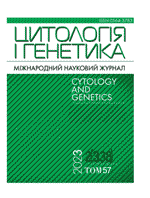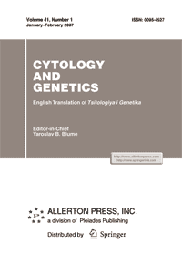The analysis of mutant Nicotiana sylvestris plants resistant to isopropyl-N-phenylcarbamate (IPC), one of the compounds from phenylcarbamate class of herbicides, has been carried out. The plants showed a pollen semi-sterility caused by disruptions during microsporogenesis and cytoplasm synthesis in microspores. Low seed production in mutant plants was connected with high pollen sterility and, partially, with low viability of seed-buds. The obtained data testify that mutations provoking IPC-resistance lead to cytogenetical and morphological abnormalities in development of male generative system that results in reduction of seed production in N. sylvestris mutant plants. The character of revealed cytological disruptions testifies possible defects in microtubule organization and functioning in mutant plants. These disruptions could be correlated with mutation(s) in one or several microtubule protein genes.
Keywords:

